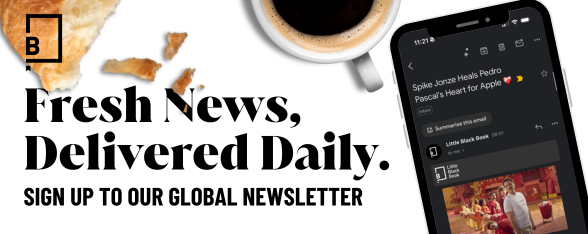
Storyblok and UC Berkeley Unveil the Future of Storytelling

Since the launch of ChatGPT, the popular AI-powered chatbot taking the world by storm, generative AI has become a topic of intense interest. It’s now clear that artificial intelligence is revolutionising the art of storytelling, content management and design thinking for the next generation of creators.
Recently, the UC Berkeley’s Jacobs Institute for Design Innovation partnered with leading content management system (CMS) Storyblok, to create an innovative design challenge. Students and alumni with backgrounds in areas like human-computer interaction, cognitive science, and mechanical engineering were asked to develop concepts imagining what the future of websites and digital content will look like.
“When Storyblok approached us with the idea of organizing a design challenge to envision the future of websites and digital content, I knew this would be an opportunity to understand those topics more fully,” Kuan-Ju Wu, Design Instructor at UC Berkeley’s Jacobs Institute for Design Innovation says. “Together with Storyblok, we embarked on a journey to explore what the future holds for us.”
Thirty participants were organized into five teams for a two-day design sprint guided by Jacobs design instructors Kuan-Ju Wu and Chris Myers.
“In this design challenge, we embarked on a journey to explore what the future holds for digital content and our relationship with it,” Wu explains. “We started by having the students delve into their personal experiences and create speculative headlines that depicted a world filled with progress or crisis. We then conducted background research to understand the signals and drivers that could lead to that future. As we visualized future scenarios through mood boards and vignettes, we were filled with a sense of purpose—a desire to create a better world for ourselves and future generations.”
The following awards were given to the projects by a group of judges during the final presentation event:
Web Decentralization (Community Choice and Best Technical Concept) - A decentralized system of content blocks inspired by Minecraft that anyone can use to collaborate on projects. Instead of billions of products designed by thousands of people, billions of people can work together to design thousands of products.
Thought-to-Thought (Best Inclusive Focus) - A neural interface that enables people to communicate thoughts and ideas without having to verbally explain. Thoughts could be stored and retrieved for special cases, such as dementia.
Finding Heart in Woven Cities (Best Social Impact) - Community robots that roam around cities and offer personalized content while improving community engagement and personal connections between people.
Interspace (Most Actionable) - A wristband that displays a personalized holographic space that can be shared with others (concept video).
Brain Computer Interfaces (Best Blue Sky) - A system that uses brain signals to create content and interact with digital experiences.
“Philosopher Peter-Paul Verbeek's technological mediation theory states that our relationship with the world is shaped and mediated by the technology we create, and it's our responsibility to ensure that our creations embody ethical and moral values,” Wu says. “I am grateful for the opportunity to work with Storyblok and the students and excited about the next steps of our vision.”
“The design challenge with Storyblok provided the opportunity to think in expansive timelines and reflect on the synergy between technology and society. I was moved by the results, which highlighted the integration of advanced technology in ways that benefit society on a personal and community level,” said Chris Myers, Design Instructor at the Jacobs Institute for Design Innovation.
“Digital content is always evolving. Storyblok was built to be a future-proof CMS that’s ready for whatever the future may bring, so we thought it would be interesting to partner with UC Berkeley to get an early look at the future of digital content. We’re so impressed by the passion and thoughtfulness that the participants put into this design challenge, and we support their vision of more personalized and inclusive content. We look forward to the time when these concepts become a reality,” said Dominik Angerer, Co-Founder and CEO of Storyblok.
AI takes headless CMS technology to new heights
Beyond these ideas, Storyblok is no stranger to AI-driven innovation, affirming that applying AI can take the concept of headless CMS to a completely new level of smart operation. Recently, Storyblok quickly got a taste of generative AI when its partner Virtual Identity applied it to its platform, creating a plugin to enable content creators to insert images generated by DALL-E whilst working on webpages.
“In one fell swoop, Virtual Identity had removed both the tedious nature of searching image libraries and the cost associated with buying stock photos. Creators could finally generate the image they needed in an instant, without ever having to leave the Storyblok CMS,” Thomas Peham, VP of Marketing, Storyblok says.
“And whilst once a distant vision, the reality is that the AI revolution is happening. It has the ability to change everything and create a content journey that is truly out of this world.”
Resources
The results of the innovative project are available under a Creative Commons Attribution 3.0 Unported license and envision an exciting future where content is more personalized and inclusive.
View the concept presentations and pictures from the design challenge
Learn more about Storyblok: https://www.storyblok.com
View Storyblok’s press kit: https://www.storyblok.com/press
See case studies: https://www.storyblok.com/case-studies












